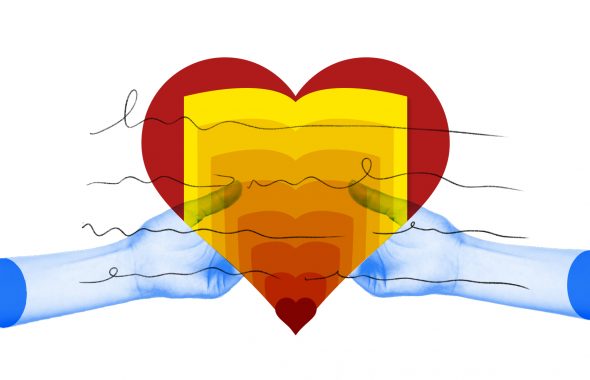As we get deeper into this new millennium, one that we like to think might free us from things like racial and gender inequities and stereotypes, some interesting “man-” words have found their way into English. What’s going on? Are we widening the gender chasm, at least linguistically?
Manly, Mean, or Meh?
The proliferation of male “gender marked” nouns, like man bun, man purse, or man cave, seems innocuous enough, though perhaps a tad demeaning. From a technical standpoint, the words don’t seem to serve much of a purpose. If a man is wearing his hair in a bun, does it really need to be called a man bun? We had the man bag of the late 1960s, and now we’re starting to see man purse; was it intended as an emasculating de-evolution of the original phrase? And isn’t man cave—evocative as it is of a knuckle-dragging dweller—derogatory? What happened to calling it the TV room?
So, we have to ask: did these phrases emerge as thinly veiled insults, a subtle power play? Are some people threatened by men with purses (or does it only work if their style is decidedly metrosexual)?
We can thank or blame the 1992 book “Men Are From Mars, Women Are From Venus” for coming up with man cave. The author John Gray made a convincing case that men need a place to get away and recharge from everyday stress. (Note: there was brief interest in mom/lady/woman caves recently, but it seems to have mostly died down. Women seem to have lost the Name A Special Room Sweepstakes, to be forever content with their “craft rooms,” which carries the faint whiff of work. Maybe with a kegerator under the cutting table it all works out.)
Question: Which do you think is worse, “man cave” or “mantuary?” Just wondering.
Going Deep
There is another category of man- words, which clearly have a more pointed, assaultive vibe. But before we get to those, let’s look at some newer words that are bridging the two categories: words like manscaping, murse, and mantertainment, Lego-words seemingly created on the fly, perhaps lightheartedly, but carrying a dash of snark.
Let’s say this first: yes, they sound pretty silly. But they are descriptive. Using the portmanteau murse in a pinch tells you the object is a male nurse (or a man purse, depending on your context…new words in motion, here). Perhaps it’s not necessary information, but it could be, under certain circumstances. If mantertainment is used as a descriptor on an invite, it can hasten the decision making for anyone not interested in participating in overtly stereotypical masculine activities. And once you learn the meaning of manscaping, how can you argue its uselessness? Still, one must admit they sound more like puerile constructs than weighty contributions to a lexicon that will age gracefully.
These bridge words lead us to the more pointed members of this new language.
Men Behaving Badly
Mansplaining—the act of explaining in a way that implies you are an expert, when you are not, and even worse, explaining to someone who might know better than you—is, arguably, not something wholly unique to men. Women do it too, although many would argue that women don’t indulge much in the second manner described, which is where the word’s power may lie. An overhead conversation where a bookish 40ish year old man “explained” misogyny to a bookish 50ish year old woman really happened. Have you ever heard a young woman explaining prostate pain to an older man?
It’s such an effective word, it now has -splain spin-offs trying to make it into the lexicon: goysplain; whitesplain; ladysplain. How far will we see it go?
Closely related is manterrupting. Women interrupt, too. But do they do it as often or with the same privilege that society offers men? Studies are rolling in, and as a 2017 report on the SCOTUSblog highlights, even the Supreme Court experiences manterrupting.
Manspreading—sitting with knees spread, taking up more than one seat in public transit—is also not really unique to men. Women do it too, with shopping bags, purses, or just sitting…like a man? Wait, what exactly is that supposed to mean!?
Do They Have Staying Power?
Many of these terms nod to a sometimes-unspoken expression of authority, and in most cases, an abuse of it. So are man words an attempt to push back, to level the playing field? Or is it another divisive cleaving of the sexes? Are any of them really complementary (or helpful) words?
Some of the new “man” lingo may well prove worthy of old age, if a word’s ability to impart meaning, and serve a previously unserved purpose, is solidly rooted. It’s that last part that may prove a challenge. What do you think? Do these words serve a purpose?













